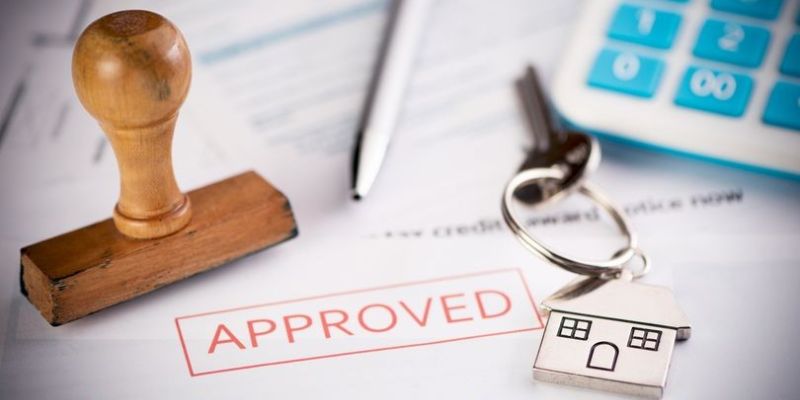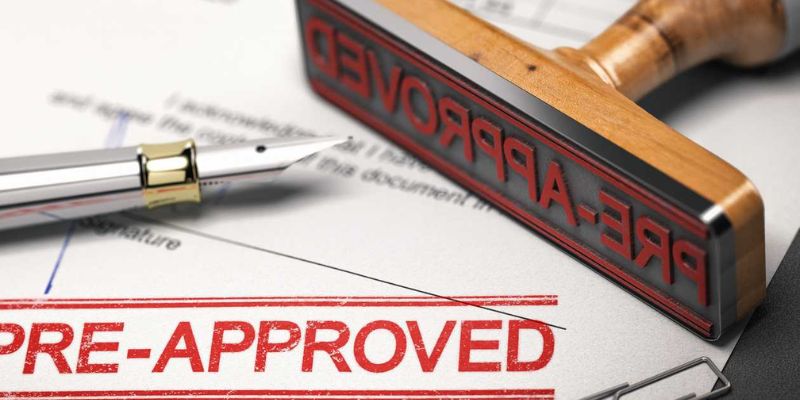How Long Does A Mortgage Preapproval Last
Jul 03, 2023 By Susan Kelly
Are you considering buying a home and want to know if getting preapproved for a mortgage is worth your time?
Many prospective home buyers are drawn to the idea of being preapproved because they believe it will save them time during the search process, but it's important to understand how long that preapproval lasts and what happens when it expires.
In this blog post, we'll cover everything you need to know about getting a mortgage preapproval and why understanding its expiration date matters. Read on to learn tips for making your potential mortgage in stone quickly!
What Is a Mortgage Preapproval
A lender will assess a borrower's financial data as part of the mortgage preapproval process to determine the size of mortgage loan they are eligible for. As it gives borrowers a better grasp of their purchasing power and fortifies their position when making property bids, it is a crucial step in the home-buying process.
Here's an overview of the mortgage preapproval process:
Application
The borrower fills out a mortgage application and submits it to the lender along with comprehensive financial information, including their income, employment history, assets, and debts. In order to confirm the information given, the lender may additionally ask for supporting evidence.
Credit Check
The lender performs a credit check to assess the borrower's creditworthiness. This involves reviewing the borrower's credit score, history, and outstanding debts or delinquencies. A higher credit score generally improves the chances of preapproval and may lead to better loan terms.
Financial Assessment
The lender evaluates the borrower's financial situation, including their income, debt-to-income ratio, and overall financial stability. This assessment helps the lender determine the borrower's ability to repay the mortgage loan.
Preapproval Decision
A pre-approval decision is made based on the information provided and the lender's evaluation. If approved, the lender issues a pre-approval letter stating the maximum loan amount the borrower is qualified to borrow.
How Is Preapproval Different from Prequalification

A mortgage preapproval is different from prequalification. Prequalification is a less in-depth assessment that can be completed without providing documentation. The pre-qualification process estimates the loan amount for which the borrower may qualify, but it is not a formal commitment from a lender.
How Can You Get Preapproved for a Mortgage
To get pre-approved for a mortgage, you must follow a series of steps that involve providing the lender with detailed financial information and documentation.
Here's a general outline of the process:
Gather necessary documents
Prepare the required documentation, which typically includes the following:
- Proof of identity (e.g., driver's license, passport)
- Proof of income (e.g., pay stubs, W-2 forms, tax returns)
- Bank statements (for checking, savings, and investment accounts)
- Employment verification
- Proof of assets (e.g., property, vehicles)
- Information on existing debts (e.g., credit cards, loans)
Research and select a lender
Shop around and compare mortgage lenders to find one that suits your needs. Consider interest rates, loan terms, fees, and customer service.
Contact the lender and initiate the preapproval process
Reach out to the lender and express your intention to get preapproved for a mortgage. The lender will guide you through the necessary steps and provide the required forms or an online application.
Complete the application
Fill out the lender's preapproval application, providing accurate and detailed information about your financial situation. This includes your income, employment history, assets, debts, and other relevant financial details.
Submit documentation
Provide the lender with the required documentation to support the information provided in the application. This may include pay stubs, tax returns, bank statements, and other financial records.
Credit check
To determine your creditworthiness, the lender will do a credit check. Your credit history, score, and any unpaid debts or delinquencies will all be examined.
Verification and evaluation
The lender will check the information you supplied and assess your financial status. Your income, debt-to-income ratio, employment stability, and financial situation will all be evaluated.
Preapproval decision
The lender will make a preapproval decision based on the evaluation. If approved, they will provide you with a pre-approval letter stating the maximum loan amount you qualify for.
Repeat the process with other lenders (optional)
To compare offers from multiple lenders, you can repeat the preapproval process with other lenders to gather multiple preapproval letters and compare terms.
It's important to remember that pre-approval is not a loan guarantee. The loan approval process occurs once you have identified a specific property and the lender has completed a thorough underwriting process.
Preapproval, however, indicates your borrowing capacity and strengthens your position as a serious buyer in the real estate market.
How Long Can a Mortgage Preapproval Take

The duration of a mortgage preapproval process can vary depending on several factors, including the lender's processes, the complexity of your financial situation, and your responsiveness in providing the required documentation.
While some lenders may provide preapproval within a few days, the process can take anywhere from a few days to several weeks. Here are some factors that can affect the timeline:
Completeness of documentation
The speed of the preapproval process is often determined by how quickly you can gather and provide the necessary documentation. It can expedite the process if you have all the required documents readily available and submit them promptly.
Lender's workload
The workload and efficiency of the lender also play a role in the duration of the preapproval process. Some lenders may have faster turnaround times due to streamlined processes or a smaller volume of applications, while others may take longer if they are experiencing high demand or have a more extensive review process.
The complexity of the financial situation
The pre-approval process may be quicker if your financial situation is straightforward, with a stable income, good credit history, and minimal debts. However, if your financial situation is more complex, such as self-employment or multiple sources of income, it may require additional verification and lengthen the timeline.
Credit check and evaluation
The lender must run a credit check and evaluate your financial information to determine eligibility. The time taken for this process can vary depending on the lender's internal procedures and systems.
Communication and responsiveness
Your responsiveness in providing requested documents and promptly answering any additional questions from the lender can significantly impact the timeline. Being proactive and organized in your communication can expedite the pre-approval process.
To get a more accurate estimate of the timeframe, it is recommended to contact the lender directly and inquire about their typical preapproval timeline. They can provide specific information based on their processes and current workload.
FAQs
Does a mortgage preapproval expire?
Yes, a mortgage preapproval expires and typically lasts 60 to 90 days. It's important to note that the preapproval process may need to be repeated if you don't close on a home within this time frame.
Is preapproval good for 120 days?
Sometimes, a lender may extend the timeline for preapproval up to 120 days. However, this extension is not guaranteed, and you should always contact your lender directly to ask about their specific policies and processes.
Can you extend a pre-approval?
Yes, it may be possible to sometimes extend the preapproval timeline. However, this will depend on your lender and their policies, so you should always contact them directly to inquire about any potential extension.
Conclusion
Getting a mortgage preapproval is an important part of the home-buying process. Understanding its expiration date and having stopgaps in place when sending documents for formal approval is essential. Updating your taxes, credit score, and other financial information each year will help you ensure that your preapproval does not expire before purchase.
For more information, check out our blog post, "How Long Does A Mortgage Preapproval Last?" It offers even more advice on navigating the pre-lending process!





